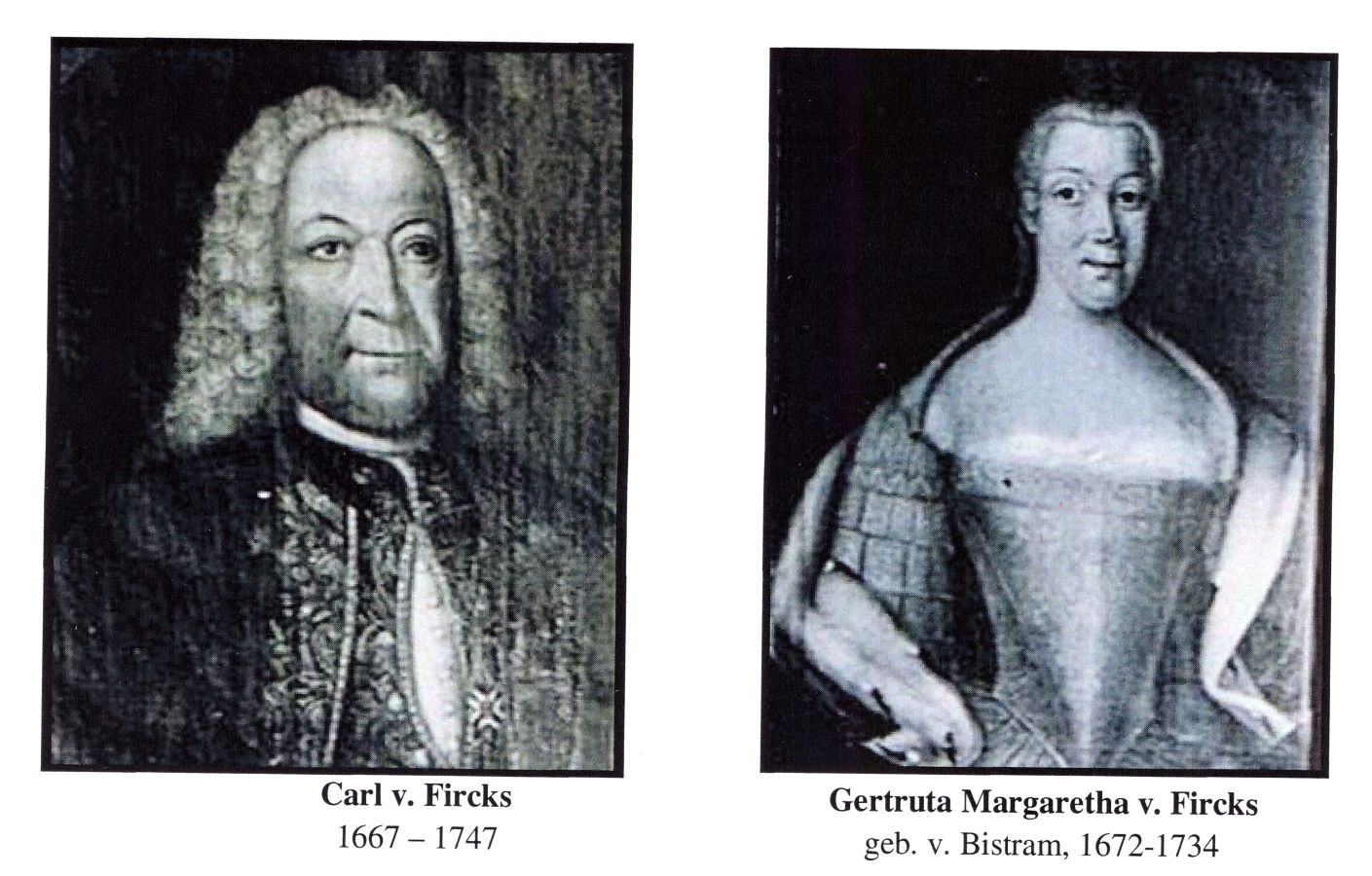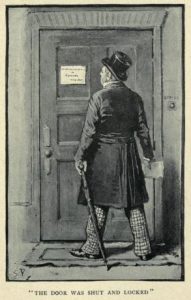One of my more interesting ancestors, who I must do more research about, is my six times paternal great grandfather, Carl von Fircks. Thank goodness my cousin Wolf Lackschewitz published the Fircks genealogical records, from which I have taken information below.
Carl von Fircks was born, married, died and was buried at the family estate, Nurmhusen, which I have written about previously. He was born on 17 November 1667 and christened two days later. Carl was the son of Christopher II von Fircks and Benigna von Sacken. He married Gerdruta Margarete von Bistram and they had three children; a girl Benigna Elisabeth, about whom I can find no information, and two sons, George Friedrich and Carl Lebrecht. Many years passed between each child; six between the births of Benigna and George and then another ten before Carl junior was born!
In his 2011 article ‘The Luxury Lifestyle in the Nurmuiža Manor’, Rūdolfs Brūzis states Carl was responsible for the first rebuilding of the manor house at Nurmhusen at the end of the 17th century. In the same article Brūzis quotes the memoirs of Karl Johann von Blomberg who, in 1701, wrote that in Nurmhusen “the owners lived as small rulers”. Brūzis also mentions it was at this time that the Nurmhusen branch of the Fircks family reached the peak of their influence.
What really interested me about Carl was his seeming ability to negotiate at high levels. From 1700 to 1721 the Baltic region was embroiled in what was known as the Great Northern War. From what I gather – and I have to say most European wars confuse me as they seem to have a number of different participants and coalitions – Russia wanted more power in the Baltic region which was, at the time, under the control of Sweden. I am sure any historians reading this will correct me if I am mistaken!
Anyway, Russia formed a coalition which included Denmark and Poland, and declared war against the young Swedish King Charles XII, who was fifteen at the time. Seven years after the beginning of the war, in order to safeguard his family and lands, Carl managed to acquire from the Swedish King a letter of protection, which secured him, his family and lands from “all hostilities … plunder, executions and all other war complaints… leaving them unmolested and freed.” The Swedish soldiers and officers who acted against the order were threatened with penalties, including death. I wish I knew how Carl managed to obtain such a letter. I assume he was an accomplished negotiator, or perhaps had performed some sort of service for the Swedish monarchy.
From my limited ability to translate German, it looks as if Carl had several positions governing in the local area, including a senior position termed Oberburggrafen. He held this last position for twenty years, and was almost eighty when he requested retirement. This request was granted on 22 March 1746 and Carl died the following year.




